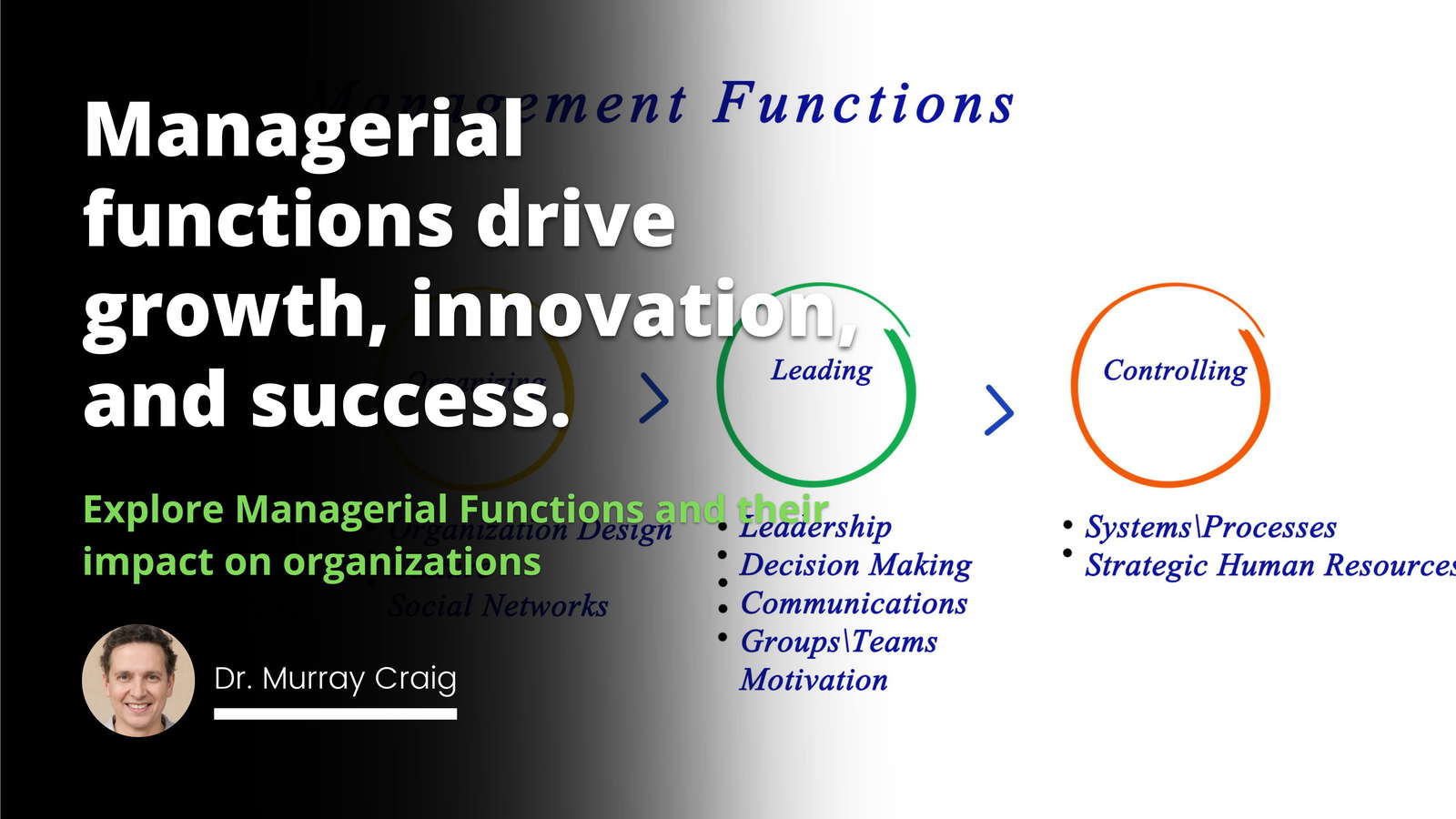
Principles of Management Explained: A Guide for Leaders
Introduction
Understanding the principles of management is essential for anyone aspiring to be an effective leader. These principles serve as the foundational guidelines that inform decision-making and strategic planning within organizations. By comprehending these fundamental concepts, leaders can navigate complex business environments and drive their teams toward success.
Over the years, the meaning of management principles has evolved, reflecting changes in organizational structures and the dynamic nature of the global economy. Today, these principles are more relevant than ever, providing a framework for managing resources efficiently and responding to challenges proactively. They help leaders align their team's efforts with organizational goals, ensuring that everyone works cohesively toward common objectives.
This leadership guide aims to delve into the core management principles, exploring their significance and application in modern business contexts. Readers can expect to gain insights into how these principles enhance leadership effectiveness, promote organizational growth, and contribute to personal development. Whether you're enrolled in free MBA courses or exploring online courses, this guide will serve as a comprehensive resource to deepen your understanding of management fundamentals.
---
Understanding the Meaning of Management Principles
Defining Management Principles
Management principles are the <u>fundamental truths</u> that serve as guidelines for decision-making and actions within an organization. They are derived from systematic studies and observations of management practices and behaviors over time. These principles provide a framework that managers can use to approach problems, allocate resources, and lead their teams effectively.
The historical evolution of management principles can be traced back to the early 20th century with pioneers such as Frederick Taylor and Henri Fayol. Taylor's scientific management emphasized efficiency and productivity, while Fayol introduced administrative principles focusing on the organization's structure and managerial functions. Over time, these foundational concepts have been expanded and adapted to accommodate the changing needs of organizations in different industries and cultures.
In modern organizational contexts, the significance of management principles cannot be overstated. They help create a cohesive strategy that aligns individual roles with the organization's overarching mission. By adhering to these principles, managers can ensure consistency in operations, foster a positive work environment, and drive the organization towards achieving its goals.
The Role of Management Principles in Leadership
Management principles play a crucial role in guiding leaders through complex decision-making processes. They provide a structured approach that leaders can rely on when faced with uncertainty or challenging situations. By applying these principles, leaders can evaluate options systematically, consider the potential impacts of their decisions, and choose the most effective course of action.
The relationship between management principles and leadership styles is deeply intertwined. Leaders who understand and apply management principles tend to adopt leadership styles that are strategic, adaptive, and people-oriented. For instance, a leader who values the principle of delegation may adopt a participative leadership style, empowering team members to take ownership of tasks and decisions.
Examples of successful leaders who embody key management principles are abundant. Consider Satya Nadella, CEO of Microsoft, who has been credited with transforming the company's culture by emphasizing continuous learning and growth mindset—principles that are central to effective management. Similarly, Indra Nooyi, former CEO of PepsiCo, demonstrated strategic planning and ethical leadership, reinforcing the importance of management principles in achieving organizational success.
---
Core Principles of Management for Effective Leadership
Planning
Planning is a fundamental management principle that involves setting objectives and outlining strategies to achieve them. It is the process of looking ahead and anticipating future needs and challenges. Through effective planning, leaders can establish clear goals, develop actionable steps, and allocate resources appropriately.
Techniques for effective planning include setting SMART (Specific, Measurable, Achievable, Relevant, Time-bound) goals, conducting SWOT (Strengths, Weaknesses, Opportunities, Threats) analyses, and engaging in scenario planning. These techniques enable leaders to create robust plans that can adapt to changing circumstances and uncertainties.
A case study illustrating strategic planning in a multinational corporation is Apple Inc.'s expansion into new markets. By meticulously planning its entry strategies, understanding local consumer behaviors, and tailoring its marketing efforts, Apple has successfully established a strong global presence.
Organizing
Organizing involves structuring teams and resources to optimize performance. This principle focuses on creating an organizational structure that facilitates effective communication, coordination, and collaboration among team members. It includes defining roles, responsibilities, and relationships within the organization.
Delegation and division of responsibilities are key aspects of organizing. By delegating tasks appropriately, leaders can empower team members, foster skill development, and increase overall productivity. Effective delegation also allows leaders to focus on strategic initiatives while team members handle operational tasks.
An example of organizational restructuring to improve efficiency can be seen in General Electric (GE) under Jack Welch's leadership. He streamlined GE's operations by flattening management hierarchies, which improved communication flow and decision-making speed, ultimately enhancing organizational performance.
Leading
Leading is the management principle that centers on inspiring and motivating teams to achieve organizational goals. It involves influencing others, building strong relationships, and fostering a positive team environment. Effective leaders are skilled in communication, emotional intelligence, and are able to adapt their leadership style to meet the needs of their team.
Communication skills are vital as they impact team dynamics, employee engagement, and the clarity of organizational objectives. Leaders who communicate effectively can build trust, resolve conflicts, and encourage collaboration among team members.
An illustration of leadership approaches in high-performing teams can be found in Google's project teams, where leaders often adopt a transformational leadership style. They motivate team members by creating a vision, encouraging innovation, and recognizing individual contributions, which leads to high levels of performance and job satisfaction.
Controlling
Controlling is the process of monitoring performance and implementing corrective measures to ensure that organizational goals are achieved. This management principle involves setting performance standards, measuring actual performance, and taking action to address any deviations from the plan.
Setting standards and evaluating outcomes allows leaders to maintain quality, improve efficiency, and make informed decisions. Effective control systems provide feedback that is essential for continuous improvement and achieving strategic objectives.
A scenario illustrating quality control processes in manufacturing is evident in Toyota's adoption of the Kaizen philosophy. Through continuous monitoring and incremental improvements, Toyota has maintained high-quality standards and operational excellence in its manufacturing processes.
---
Applying Management Principles in Today's Business Environment
Adapting to Technological Advances
Integrating technology into management practices is imperative in the modern business environment. Technological advancements have transformed how organizations operate, communicate, and deliver value to customers. Leaders must adapt by embracing digital tools and platforms that enhance efficiency and enable data-driven decision-making.
The impact of digital transformation on management principles is profound. Traditional management activities such as planning, organizing, leading, and controlling are now facilitated by technology. For example, project management software, analytics tools, and communication platforms have revolutionized how teams collaborate and execute tasks.
An example of utilizing project management software for remote teams is seen with companies like Slack Technologies. By leveraging tools like Slack and Asana, remote teams can coordinate projects, share updates, and maintain productivity regardless of geographical locations.
Ethical Considerations and Corporate Responsibility
Incorporating ethics into management decisions is crucial for building trust and maintaining a positive reputation. Ethical management practices involve making decisions that are not only legally compliant but also socially responsible and aligned with moral standards.
The role of corporate social responsibility (CSR) in leadership extends beyond philanthropy. Leaders must integrate CSR into the core strategy, ensuring that the organization's operations positively impact society and the environment. This approach can enhance brand image, foster customer loyalty, and contribute to long-term success.
A case study of ethical leadership in crisis management is the response of Johnson & Johnson during the Tylenol crisis in 1982. The company's commitment to consumer safety and transparent communication, even at significant financial cost, exemplified ethical decision-making and strengthened public trust.
Globalization and Cultural Diversity
Managing cross-cultural teams requires understanding and respecting cultural differences. Leaders must develop cultural intelligence to navigate language barriers, diverse work ethics, and varying communication styles. This sensitivity enhances team cohesion and effectiveness in a globalized workforce.
Principles for effective international management include:
- Cultural Awareness: Understanding the cultural backgrounds of team members.
- Adaptability: Being flexible in management approaches to accommodate cultural differences.
- Clear Communication: Ensuring that language and messaging are accessible to all team members.
An illustration of navigating cultural differences in global markets is demonstrated by McDonald's adaptation of its menu to suit local tastes in different countries. By respecting cultural preferences and dietary habits, McDonald's has successfully penetrated diverse markets worldwide.
---
Enhancing Leadership Skills Through Management Principles
Continuous Learning and Development
The importance of professional development cannot be overstated in the pursuit of effective leadership. As the business landscape evolves, leaders must commit to lifelong learning to stay abreast of new trends, technologies, and management practices. This dedication to self-improvement enhances their ability to lead and adapt.
Methods for staying updated with management trends include:
1. Enrolling in advanced education programs, such as MBAs or specialized courses.
2. Participating in workshops and seminars focused on leadership and management skills.
3. Engaging with professional networks and forums to exchange ideas and experiences.
An example is taking advantage of online courses offered by reputable institutions, which provide flexibility and access to cutting-edge knowledge. Many leaders also benefit from free MBA courses available online, making continuous learning more accessible.
Innovation and Change Management
Fostering a culture of innovation within teams is essential for maintaining a competitive edge. Leaders can encourage creativity by promoting open communication, rewarding innovative ideas, and providing resources for experimentation. This environment empowers team members to contribute unique solutions and drive organizational growth.
Strategies for effective change management include:
- Communicating the vision clearly and consistently.
- Involving stakeholders in the planning and implementation process.
- Providing training and support to ease the transition.
A scenario of implementing new processes in a resistant environment can be seen in organizations adopting Agile methodologies. Leaders who successfully navigate resistance do so by highlighting benefits, addressing concerns, and demonstrating commitment to the changes.
---
Conclusion
In summary, the key management principles—planning, organizing, leading, and controlling—are vital tools for effective leadership. By understanding and applying these principles, leaders can navigate the complexities of today's business environment, drive organizational success, and foster team development.
The continuous application of these principles is essential for sustained leadership success. As organizations face new challenges and opportunities, leaders who embrace management fundamentals will be better equipped to adapt, innovate, and inspire others.
Leaders are encouraged to integrate these fundamentals into their personal leadership style, continually reflecting on their practices and seeking opportunities for growth. By doing so, they not only enhance their effectiveness but also contribute positively to their organization's culture and performance.
References
- Fayol, Henri. General and Industrial Management. London: Pitman, 1949.
- Drucker, Peter F. The Practice of Management. New York: Harper & Row, 1954.
- Online courses on leadership and management offered by Harvard Business School Online and Coursera.
- Free MBA courses available through platforms like edX and MIT OpenCourseWare.
Acknowledgment is given to the thought leaders and scholars whose work continues to inform and shape modern management practices.
---
Frequently Asked Questions
What are the core principles of management, How can managers effectively apply these principles in decision-making, Why is understanding management principles important for leadership?
What Are the Core Principles of Management?
The principles of management guide organizational success. These principles serve as a foundation for planning and decision-making. Henri Fayol, a management thinker, defined 14 key principles. These principles have evolved to suit modern organizations. Effective management applies these principles carefully.
Some core management principles include:
- Division of Work: Specialization increases productivity and efficiency. Assign tasks based on strengths and skills.
- Authority and Responsibility: Authority enables decisions, while responsibility ensures accountability.
- Discipline: Rules and agreements ensure order and stability.
- Unity of Command: Each employee answers to one manager only. This reduces confusion and conflicts.
- Unity of Direction: Teams work toward a shared, clear goal.
- Equity: Fair treatment builds trust and morale.
Managers need to understand and use these core ideas. Their application varies across industries but principles remain universal.
How Can Managers Effectively Apply These Principles in Decision-Making?
Managers must align principles with situational needs. They should stay flexible but consistent in their application. Decision-making connects directly to excellent management. Here's how to implement principles effectively:
- Use division of work for project planning. Assign the right tasks to the right people. This saves time and avoids inefficiency.
- Practice accountability with authority. Empower teams but monitor outcomes. Guide rather than micromanage.
- Maintain discipline during change. Communicate rules and expectations clearly. Support employees without compromising order.
- Clarify roles for unity of command. Avoid assigning multiple managers to a single task. Ensure clear reporting lines enhance collaboration.
- Define achievable goals for unity of direction. Align team objectives with organizational strategies. Provide the resources teams need.
- Be fair and transparent. Offer rewards for performance. Recognize and address grievances respectfully.
These principles help managers make consistent and informed decisions. Their careful application minimizes errors and conflict.
Why Is Understanding Management Principles Important for Leadership?
Leaders rely on management principles for strategic action. Understanding these principles builds long-term success. Leadership is not only about vision. A leader needs structure and technique to inspire, guide, and grow teams.
- Principles create a systematic framework. Leaders operate within structured guidelines. This allows for better execution of ideas.
- Leadership becomes adaptable to challenges. Sound principles allow leaders to act calmly. Practical decisions emerge from logical foundation.
- Good leaders foster productivity and trust. Fairness, accountability, and unity strengthen teams. Employees perform better under trusted leadership.
- Principles encourage ethical decision-making. Ethical leaders serve as role models. Rules like equity and discipline guide their actions.
Leaders must balance inspiration with management precision. Proper principles ensure organizations achieve both vision and discipline.
Conclusion
Understanding the core principles of management is vital. These principles define how successful organizations operate. Managers apply them to enhance decisions and outcomes. Leaders use them to inspire teams and build trust. Mastery of these ideas leads to thriving businesses and empowered employees. Management principles remain the cornerstone of effective leadership.


